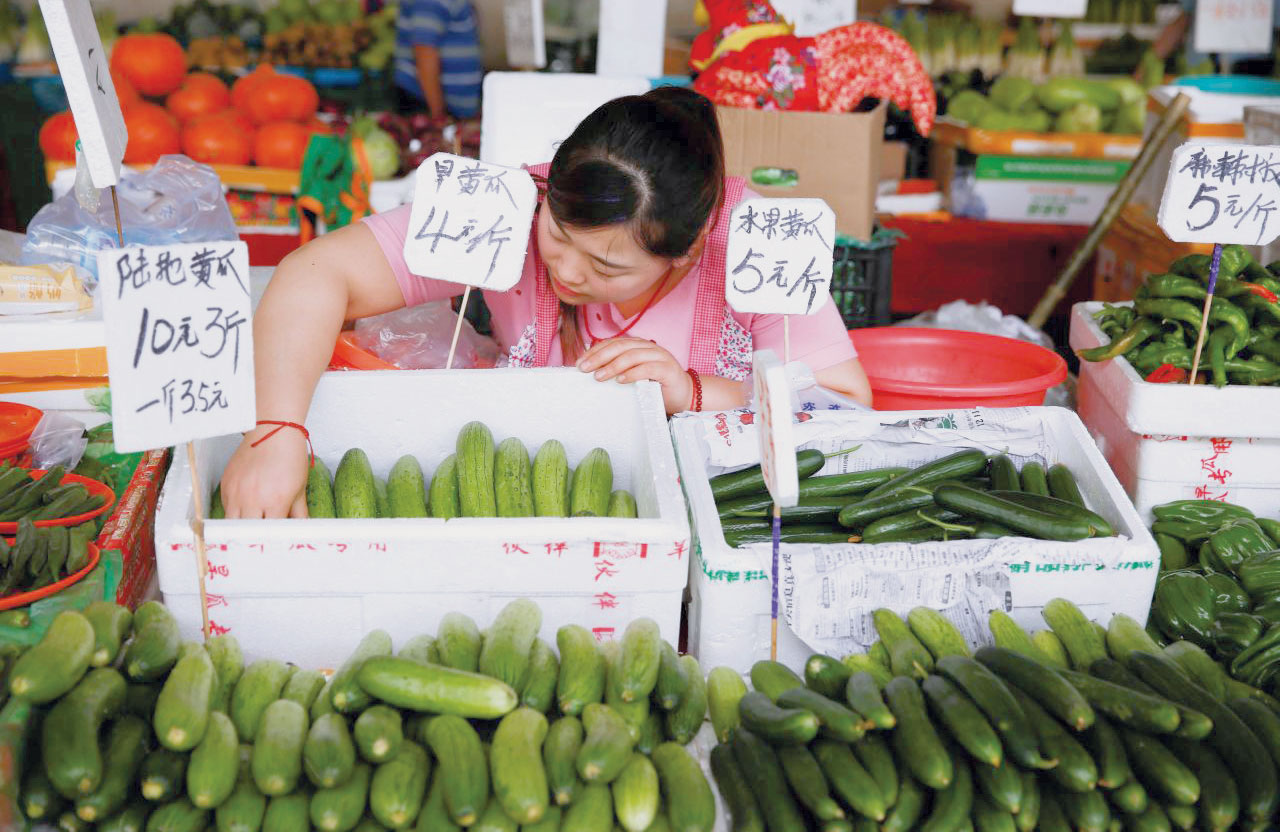

BEIJING: China’s producer inflation accelerated to a six-month high in June, lifted by strong commodity prices and threatening to put more pressure on the country’s exporters as a trade war escalates between Washington and Beijing.
Annual consumer inflation also edged up as food prices rose at a faster pace, official data showed on Tuesday.
But retail price pressures remain modest, allowing the central bank to remain more focused on ways to support the slowing economy.
The United States and China slapped tariffs on $34 billion worth of each others’ goods last week, fuelling fears of a prolonged battle that would hurt global investment and growth, damage US farm exports and potentially drive up food prices in China.
The producer price index (PPI) — a gauge of industrial profitability — rose by a stronger-than-expected 4.7 per cent in June from a year earlier, compared with a 4.1 per cent increase in May, according to the National Bureau of Statistics (NBS). China’s producer inflation has now picked up for three months in a row after easing in late 2017, though month-on-month growth dipped to 0.3 per cent in June.
Analysts polled by Reuters had expected June producer inflation would pick up to 4.5 per cent, buoyed by a recent recovery in global commodity prices.
June’s price gains were driven by increases in oil and gas production, coal mining, metals and chemicals processing and manufacturing sectors.
With oil prices up, China on Monday raised retail gasoline prices by the most since December 2016.
The higher prices have helped fuel a jump in earnings, with profits at China’s industrial firms growing at a sizzling pace in May, but some analysts say the latest gains would have less of an impact on profits.
“Unlike the broad based pick-up in PPI last year, the recent rebound has been more narrowly driven by oil prices and so is less supportive of corporate profits,” Julian Evans-Pritchard, Senior China Economist at Capital Economics, wrote in a note.
The jump in prices of resources such as oil and steel has benefitted producers but raised input costs for manufacturers like exporters which are further along supply chains.
Business surveys show Chinese manufacturers are already reporting softer export orders as the trade row deepens.
There are few signs in official data that tariff jitters are percolating through to most Chinese consumers just yet. The consumer price index (CPI) rose 1.9 per cent in June from a year earlier, in line with expectations for a slight pick-up from May’s gain of 1.8 per cent.
On a month-on-month basis, the CPI fell 0.1 per cent.
The core consumer price index, which strips out volatile food and energy prices, was unchanged at 1.9 per cent in June.
The food price index rose 0.3 per cent from a year earlier, after ticking up 0.1 per cent in May.
Non-food prices rose 2.2 per cent, compared with 2.2 per cent growth a month earlier.
Still, investors are closely watching for signs of any upward price pressure from American retail goods hit by higher Chinese duties, ranging from pet food to mixed nuts and whiskey.
German automaker BMW said on Friday that it will have to raise prices on US-made models that are imported by China.
Tesla has raised prices on its Model X and S models sold in China by more than $20,000, automotive news website Electrek reported on Monday.
But analysts believe retail price rises will likely be limited, capped by higher borrowing costs and waning domestic demand.
“We believe the government is likely to introduce special measures such as returning the charged 25 per cent tariffs on some agricultural products to importers,” economists at Nomura said in a note. — Reuters
Oman Observer is now on the WhatsApp channel. Click here



